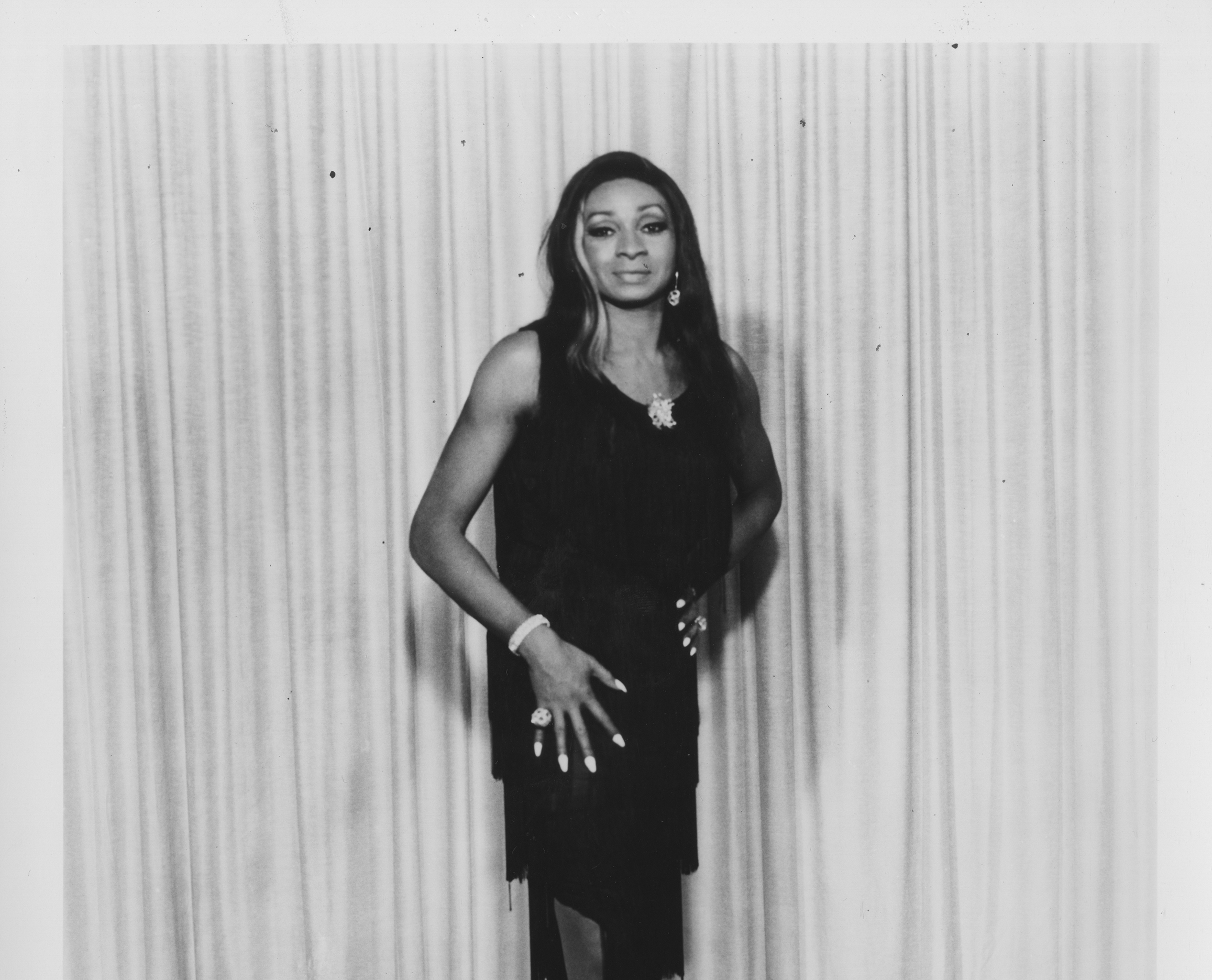“We had never seen anything up close like that in Toronto,” Canadian soul singer Eric Mercury told a 2017 National Public Radio documentary. “It was like a tornado coming through the place.” He was talking about Jackie Shane’s show at Toronto’s Holiday Tavern. He said he would come out of there sweating, “and it wasn’t hot in there, except for what Jackie was putting down.”
In 1963, Jackie Shane’s single Any Other Way reached No. 2 on Toronto CHUM’s music charts, one of many high points in her successful decades-long career as a singing and dancing entertainer. She performed with a circuit that regularly took her to Toronto, Montreal and Boston, living in luxury hotels. On the side, she also played drums in Los Angeles recording sessions.
Jackie Shane was assigned the male gender at her birth in 1940, in Nashville. She started performing locally in the 1950s, with her mother’s blessing, in long hair, make-up and jewelry. At 13, she joined a carnival travelling to Cornwall and Montreal, and arrived in Cornwall in 1959. “I felt free,” she told Rob Mcgowan for liner notes in the 2017 Any Other Way collection re-issue.
From then on, Jackie Shane dressed just the way she liked. If people pointed their fingers and tried to hide a laugh, she said in an NPR interview, she’d shrug it off. Her philosophy was, “Baby, do what you want, just know what you’re doing. As long as you don’t force your will and your way on anyone else, live your life because ain’t nobody sanctified and holy.”
CTV reported that she started performing in Toronto in 1961 and quickly became a “mainstay” of the music scene until her disappearance in 1971. “With her mesmerizing, soulful voice,” wrote Daniel Otis, “wild moves like James Brown’s and an electric stage presence like Little Richard’s, the Nashville, Tennessee, native was a tour de force: a transgender woman playing loud and proud — sequined gowns, high heels, make-up and all — at a time when ‘transgender’ wasn’t even a term.”
“In cities like Montreal, Boston and Los Angeles, Jackie Shane was a bona fide star,” wrote rock critic Rob Bowman in NOW magazine. “But here in Toronto, she was a hero, with an appeal that attracted audiences gay and straight, Black and white…”
Shane became somewhat reclusive after she left Toronto in 1971 to live in Los Angeles with a new boyfriend and her mother, Jessie Shane. Some reports say Jessie Shane was a shrewd investor, as well as being supportive to her strong-willed child. After her departure, Jackie Shane’s fans consoled themselves with her six double-sided 45 pm records, which quickly became collector’s items. People were paying hundreds of dollars for a single record.
Douglas Mcgowan, a producer at Numero Group, spent a year tracking down Jackie Shane and convincing her to sign a new contract, giving him a license to re-package and re-issue her previous 45s along with a previously released live album and three unreleased cuts. Then he spent three years working with her, to bring out the best in the vintage recording. They worked by phone and through her front door, he said. He’s never actually seen her.
The result was the first official boxed double-disc collection of Jackie Shane’s music, Any Other Way, now nominated for a Grammy. In 2017, Jackie Shane Live was shortlisted for the Polaris Heritage Prize.
Shane, 78, now lives in Nashville again. She’s excited to be nominated. As the NPR documentary said, “Any Other Way is a singular package, an insanely rare first-person document of a life that had a million more than likely chances to slip into the quicksand of history, but still exists.”
Award-winning author and journalist Penney Kome has published six non-fiction books and hundreds of periodical articles, as well as writing a national column for 12 years and a local (Calgary) column for four years. She was Editor of Straightgoods.com from 2004 – 2013.
Help make rabble sustainable. Please consider supporting our work with a monthly donation. Support rabble.ca today for as little as $1 per month!




